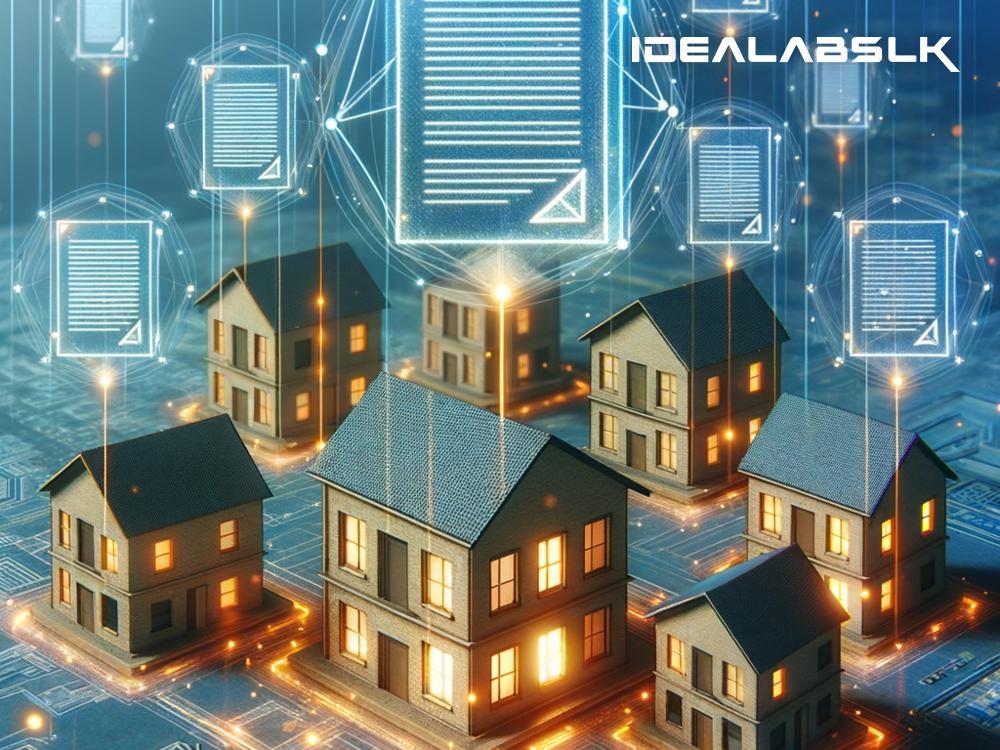Unlocking Trust: How Blockchain is Revolutionizing Property Verification Processes
The world of property ownership is as old as civilization itself, but the systems we use to manage and verify property rights have often struggled to keep pace with the speed of modern life. In many parts of the world, property ownership processes are burdened by inefficiencies, fraud, and a lack of transparency, causing headaches for buyers, sellers, and everyone in between. Enter blockchain technology, a game-changer that's poised to revolutionize how we handle property verification, making the process faster, more secure, and transparent. But what exactly is blockchain, and how is it transforming property verification processes? Let's dive in.
What is Blockchain?
Imagine a ledger or a record-keeping book that's not held in one place but is distributed across a network of computers. This ledger records transactions in blocks, and each block is linked (or chained) to the one before it, hence the name blockchain. The beauty of blockchain is its security and immutability; once a transaction is entered, it's nearly impossible to alter, creating a permanent, transparent record of every transaction.
The Pain Points of Traditional Property Verification
Traditionally, verifying property ownership involves a lot of paperwork, numerous stakeholders (like government agencies, real estate agents, and lawyers), and, unfortunately, a high potential for fraud. Fake titles, fraudulent transactions, and human error can turn property transactions into lengthy, costly nightmares.
Additionally, in many developing countries, the lack of a reliable property registry system often leads to disputes over land ownership, which can be a significant barrier to economic development. This is where blockchain comes in, offering a promising solution to these age-old problems.
Blockchain’s Role in Property Verification
Blockchain is essentially a trust machine; it allows people who have no particular reason to trust each other to agree on the current ownership status of a property. Here’s how it’s transforming the property verification process:
-
Immutable Records: Once a property transaction is recorded on a blockchain, it cannot be altered or deleted. This creates a tamper-proof history of property ownership that can significantly reduce fraud.
-
Transparency: Blockchain operates on a decentralized network that anyone in the system can access and verify. This transparency helps build trust among parties and can speed up the verification process.
-
Efficiency and Cost Reduction: By automating the property verification process using smart contracts (self-executing contracts with the terms of the agreement directly written into lines of code), blockchain can significantly reduce the time and cost associated with property transactions. No more waiting weeks for paperwork to be processed or paying hefty fees to multiple intermediaries.
-
Access to Information: A blockchain system can provide a detailed history of a property, including previous ownership, any disputes, and changes over time. This level of detail, easily accessible to potential buyers, can help make informed decisions faster.
Real-World Examples
Several countries and organizations are already exploring blockchain’s potential in property verification:
-
Sweden’s Land Registry: Sweden has been testing a blockchain-based system for property transactions that reduces the sale time from several months to just a few days.
-
Georgia’s National Agency of Public Registry: They've implemented a blockchain system to secure and transparently record property transactions, leading to increased public trust in the real estate market.
-
BitProperty: This platform allows users to buy, sell, and invest in property using blockchain technology, offering a more transparent and efficient way to handle property transactions worldwide.
The Future of Property Verification
As blockchain technology continues to evolve, its impact on the property verification process looks promising. The potential for a global, standardized, blockchain-based property registry could open up new opportunities for economic development, especially in regions where land ownership is a complex and contentious issue. However, it's not without challenges. Legal frameworks, regulatory issues, and the technological adoption barrier must be addressed for blockchain to reach its full potential in this space.
In conclusion, blockchain technology offers an innovative solution to the long-standing issues plaguing property verification processes. By leveraging blockchain's strengths—security, transparency, and efficiency—we can envision a future where property transactions are smoother, faster, and more trustworthy than ever before. As we move forward, it's clear that blockchain is not just reshaping the future of property transactions; it's laying the foundation for a more secure and transparent world.

